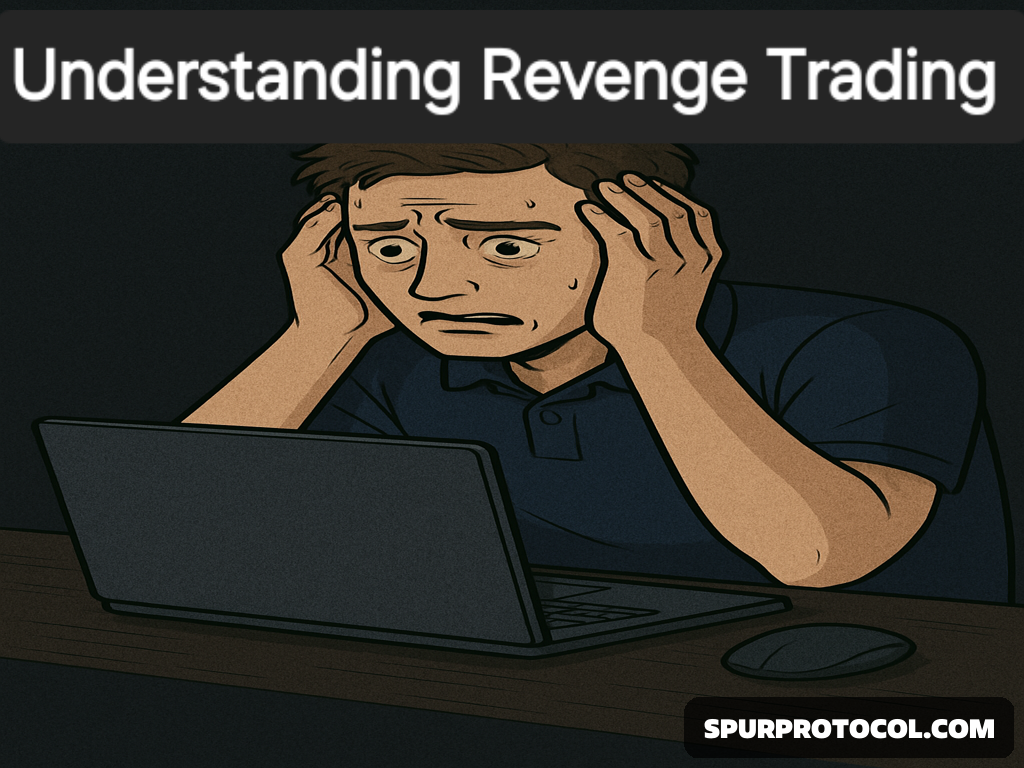Understanding Revenge Trading
Revenge trading is something every trader, whether new or experienced, may fall into at some point. It happens when you lose money in a trade and, instead of taking time to think, you rush back into the market trying to win back that money—fast. But you’re no longer thinking clearly. You’re angry, frustrated, and emotional. You want to “get even” with the market. The hard truth? The market doesn’t care how you feel. Acting on emotion usually leads to more losses and more regrets.
Go Back

🕒 1:28 PM
📅 Apr 18, 2025
✍️ By BillionaireHighPriest
What Exactly Is Revenge Trading?
Revenge trading is when you try to recover your losses quickly by jumping back into the market—making bigger trades, taking bigger risks, and ignoring your normal trading plan. You’re not trading smart; you’re trading angry. It’s like losing your money in a game and, out of rage, throwing in more money hoping to win it all back.
What Triggers Revenge Trading?
- Big Losses: Losing a large amount makes you panic and want to recover fast.
- Ego and Pride: You feel embarrassed or foolish and want to prove you're still a good trader.
- Impatience: You don’t want to wait for a better setup—you want your money back now.
- Fear of Missing Out (FOMO): You’re scared the market will make a move without you, so you jump in recklessly.
Why Is It So Dangerous?
- You’re Not Thinking Straight: You make rushed decisions based on emotion, not logic.
- You Break Your Own Rules: You take trades you normally wouldn’t because you're desperate.
- Losses Multiply: You’re likely to keep losing because the trades are not well-planned.
- Mental Pressure Builds: You get tired, stressed, and frustrated—which affects your future trades and your peace of mind.
Real-Life Example
Let’s say you're trading Bitcoin. You bought 1 BTC at $85,000, expecting the price to rise. Instead, the market drops to $81,500. You panic and sell, losing $3,500. You feel angry, stupid, and hurt.
Without taking time to calm down or analyze the market, you throw your remaining money into a trending altcoin—maybe Dogecoin or some random meme coin—hoping to double your money fast and recover your loss.
But that coin also crashes right after you enter, and now your total loss is even bigger. Why? Because you didn't trade with a plan—you traded with emotions. This is classic revenge trading.
Signs You’re About to Revenge Trade
- You feel emotionally upset—angry, sad, or anxious—after a loss.
- You think, “I’ll get it all back in the next trade.”
- You suddenly increase your trade size without reason.
- You enter trades too fast without analyzing them properly.
- You abandon your usual strategy and start gambling.
How to Avoid Revenge Trading
- Accept That Losses Happen: Even the best traders lose. What matters is how you respond, not the loss itself.
- Step Away: After a big loss, walk away. Breathe. Go outside. Let your emotions cool off before trading again.
- Stick to a Plan: Always trade based on a written plan. If a trade doesn’t meet the rules, don’t take it.
- Use Daily Loss Limits: Decide in advance how much you can afford to lose in one day. If you hit that number, stop trading for the day.
- Write a Trading Journal: After every trade, write how you felt and what you did. Over time, this helps you spot emotional patterns.
The Mindset of a Successful Trader
- Doesn’t chase the market. Waits patiently for good trades.
- Handles wins and losses with a level head.
- Focuses on long-term progress, not short-term revenge.
- Sees trading as a business, not a gamble or emotional outlet.
Revenge trading is like trying to punch the market back after it slapped you. But the market has no feelings. It just moves. When you trade emotionally, you’re fighting a battle you can’t win—because you’re not thinking, you’re reacting.
If you want to be a strong trader, you must learn to manage your emotions as much as your money. Step back when you're upset. Wait for clear setups. Follow your plan. The market will always be there, but your peace of mind and your capital might not—unless you trade with control, not emotion.
